Ginkgo Biloba and Memory Support for BDD Recovery
Introduction
Recovering from Body Dysmorphic Disorder (BDD) isn’t only about changing how you see yourself—it’s also about retraining how your mind functions. People with BDD often struggle with mental fog, intrusive thoughts, poor focus, and memory lapses, all of which can make therapy, mindfulness, and daily life more challenging.
These cognitive issues aren’t signs of laziness or disinterest—they’re biological. Chronic anxiety, obsessive rumination, and emotional stress deplete neurotransmitters, reduce blood flow to the brain, and impair short-term memory. Over time, this creates a cycle where poor cognition fuels more frustration, and frustration fuels more obsessive thinking.
One natural compound that’s been studied extensively for brain health and memory enhancement is Ginkgo biloba, an extract from one of the oldest living tree species on Earth. Its unique properties—enhancing circulation, protecting neurons, and balancing neurotransmitters—make it a promising ally in the cognitive side of BDD recovery.
This article explores how Ginkgo biloba works, how it affects memory and emotional regulation, and how it might help those living with BDD regain mental clarity and focus.
Looking for supplements for This? Click here.
Understanding Cognitive Dysfunction in BDD 🧠
People with Body Dysmorphic Disorder often experience a mix of hyperfocus and forgetfulness. They can fixate on minute details of their appearance for hours yet forget simple daily tasks or conversations. This paradox stems from how BDD alters the brain’s attention and memory systems.
Neuroimaging studies show that individuals with BDD exhibit:
Overactivation in the visual cortex, especially when viewing faces or body parts
Impaired prefrontal cortex activity, affecting decision-making and focus
Reduced communication between emotional and cognitive brain regions, leading to poor self-assessment
These abnormalities create a type of selective attention bias—the brain allocates most of its resources toward perceived “flaws,” leaving little bandwidth for other forms of cognitive processing.
Over time, stress hormones like cortisol further impair short-term memory, mood stability, and mental stamina. Supporting the brain through improved circulation, oxygenation, and neuroprotection becomes an essential part of recovery—and this is precisely where Ginkgo biloba shines.
What Is Ginkgo Biloba? 🌿
Ginkgo biloba comes from the leaves of the ancient Ginkgo tree, a species that has existed for more than 200 million years. Its medicinal use dates back to traditional Chinese medicine, where it was prescribed for longevity, mental clarity, and circulatory health.
The active compounds in Ginkgo—mainly flavonoids and terpenoids (ginkgolides and bilobalide)—act as powerful antioxidants and vasodilators. These components enhance blood flow, protect neurons from oxidative stress, and improve the efficiency of neurotransmitter communication.
For the modern brain under constant digital stimulation and emotional stress, this translates to better focus, sharper memory, and greater resilience to mental fatigue.
How Ginkgo Biloba Affects the Brain 🧬
Ginkgo’s effects are multifaceted—it doesn’t just boost memory; it optimizes the entire cognitive ecosystem.
Improved Cerebral Blood Flow
The brain relies on steady blood flow to deliver oxygen and nutrients. Chronic stress constricts blood vessels, reducing oxygen supply to key areas like the hippocampus (memory center).
Ginkgo biloba increases microcirculation in these regions, improving alertness and recall.
Enhanced Neurotransmitter Balance
Ginkgo modulates levels of acetylcholine, dopamine, and serotonin—neurochemicals essential for focus, motivation, and mood regulation. This can help people with BDD shift out of obsessive thought loops and re-engage with balanced, grounded thinking.
Antioxidant and Neuroprotective Effects
The brain is highly sensitive to oxidative damage, especially under chronic anxiety. Ginkgo’s flavonoids neutralize free radicals, protecting neural membranes and mitochondria. This helps reduce inflammation and cognitive fatigue.
Supports Neuroplasticity
Ginkgo may enhance Brain-Derived Neurotrophic Factor (BDNF)—a key protein for learning, emotional resilience, and the formation of new neural connections. This is vital for therapy-based recovery, where new mental patterns must replace old, distorted ones.
The Role of Memory in BDD Recovery 🧠💫
Memory plays a powerful role in how we perceive ourselves. People with BDD often recall negative experiences—bullying, rejection, embarrassment—more vividly than positive ones. This negativity bias reinforces the belief that something is “wrong” with their appearance.
Improving memory and cognitive control through compounds like Ginkgo can help recalibrate emotional memory, making it easier to form balanced associations and let go of old thought patterns.
Therapy and mindfulness can then work more effectively, because the mind has the cognitive strength to process new beliefs and perspectives instead of looping through old ones.
Scientific Evidence: Ginkgo and Cognitive Function 📚
Dozens of studies confirm Ginkgo biloba’s positive effects on cognitive performance, even in individuals without cognitive impairment.
A review published in Psychopharmacology found that Ginkgo significantly improved working memory, processing speed, and executive function, especially under mental stress.
Research in Human Psychopharmacology showed that Ginkgo enhances focus and reaction time within an hour of ingestion.
Studies on neurodegenerative conditions (like Alzheimer’s disease) reveal Ginkgo’s neuroprotective effects, suggesting its ability to maintain brain health under chronic strain.
For those with BDD, where the brain is under constant emotional and cognitive load, these benefits could translate to:
Greater mental endurance during therapy
Reduced fatigue after rumination or social interactions
Improved recall of coping strategies and positive feedback
Emotional Regulation and Ginkgo 🌿🧘

Beyond cognition, Ginkgo also influences emotional regulation through its impact on serotonin and dopamine systems. Balanced neurotransmitter activity allows for a calmer internal dialogue and less impulsive reactivity to perceived flaws.
In one study, participants taking Ginkgo showed reduced anxiety levels and improved emotional adaptability, likely due to better stress hormone regulation. For BDD recovery, this can mean fewer emotional spikes after exposure to mirrors, photos, or social media.
Additionally, Ginkgo’s gentle MAO-inhibiting properties help prevent excessive breakdown of dopamine and serotonin—allowing mood to remain more stable throughout the day.
How Ginkgo Enhances Cognitive Resilience 🧩
Ginkgo supports three pillars of mental resilience that are essential during recovery:
Focus: The ability to stay anchored in the present moment rather than spiraling into analysis or comparison.
Cognitive Flexibility: The capacity to shift between thoughts, perspectives, or emotional states without getting “stuck.”
Mental Endurance: Sustaining clarity and motivation throughout therapy, journaling, or self-reflection.
When these cognitive strengths improve, recovery feels less like an uphill battle. The brain begins to cooperate instead of resist.
Ginkgo Biloba and the Brain’s Healing Pathways 🌱
Therapy rewires the brain by creating new neural pathways—connections that favor calm reasoning over fear-based reactions. Ginkgo enhances this process by:
Supporting oxygen and glucose metabolism in neurons
Promoting the growth of dendrites (neural connectors)
Protecting cells from the stress-induced shrinking of the hippocampus
This synergy between Ginkgo and neuroplasticity allows therapeutic progress to stick, helping people not only understand new concepts intellectually but also feel them emotionally.
Dosage, Timing, and How to Use Ginkgo Biloba 💊
Standard dosage: 120–240 mg daily of standardized Ginkgo biloba extract (containing 24% flavone glycosides and 6% terpene lactones).
Best time to take: Morning or early afternoon with food. Taking it late may increase alertness and affect sleep.
Duration: Benefits are gradual. Most studies show noticeable cognitive improvements after 4–6 weeks of consistent use.
Optional stack:
Ginkgo + Alpha GPC: Boosts both blood flow and acetylcholine for superior memory support.
Ginkgo + Rhodiola: Enhances focus while reducing mental fatigue.
Ginkgo + Omega-3s: Supports long-term neuronal repair and mood balance.
Looking for supplements for This? Click here.
Possible Side Effects and Interactions ⚠️
Ginkgo is well-tolerated when taken within standard dosage ranges, but side effects can occur, including:
Mild nausea or headache
Slight increase in heart rate or restlessness
Risk of bleeding when combined with anticoagulants (consult your doctor if taking aspirin, warfarin, or similar medications).
Avoid using Ginkgo if you have upcoming surgery, bleeding disorders, or are pregnant.
Integrating Ginkgo with Mind-Body Practices 🧘
Supplements like Ginkgo are most effective when paired with lifestyle practices that strengthen the same brain pathways they support.
Mindfulness Meditation
Improves prefrontal control and emotional regulation—the same regions Ginkgo oxygenates.
Physical Exercise
Aerobic movement increases blood flow and BDNF, synergizing beautifully with Ginkgo’s vascular effects.
Cognitive Behavioral Therapy (CBT)
As Ginkgo enhances memory and focus, patients can retain therapeutic insights longer and apply coping techniques more consistently.
Breathwork and Grounding Exercises
Encourage parasympathetic activation, reinforcing calm states that promote healing and learning.
Ginkgo Biloba and Self-Perception 🌿💛
One of the most subtle but meaningful benefits of cognitive support supplements like Ginkgo is how they shift self-perception.
When the brain has more energy and oxygen, thought patterns become more flexible. Instead of reacting automatically to intrusive thoughts (“I look awful”), you gain the pause needed to question them (“Do I actually look different, or is this just anxiety?”).
This space between thought and reaction is the birthplace of healing.
The Role of Patience and Consistency 🌱
Ginkgo biloba works gradually—it’s not a stimulant. Its benefits build up over weeks as neural function and blood flow improve. Consistency is key, and results are often cumulative.
Think of it not as a quick fix but as a long-term brain nourishment plan. When combined with emotional work and good nutrition, it helps restore cognitive balance and clarity from the inside out.
Nutrition, Lifestyle, and Complementary Support 🍎
To support Ginkgo’s effects, ensure the brain receives complementary nutrients:
Magnesium: Calms excitatory brain activity.
B Vitamins: Support neurotransmitter synthesis and energy production.
Omega-3 Fatty Acids: Enhance neuron membrane fluidity.
Antioxidant-rich foods: Blueberries, green tea, and turmeric fight oxidative stress.
Lifestyle-wise:
Get 7–8 hours of sleep to consolidate learning and emotional memory.
Limit alcohol and nicotine, which impair circulation and memory.
Practice journaling or gratitude exercises to retrain emotional recall.
Looking for supplements for This? Click here.
Ginkgo as a Bridge Between Science and Self-Healing 🌿🧠
Healing from BDD involves both psychological rewiring and physiological support. Supplements like Ginkgo biloba bridge these worlds—they give the brain the stability it needs to process emotional insights and integrate change.
When mental fog lifts and memory sharpens, therapy sessions become more productive, mindfulness feels deeper, and daily life becomes more manageable.
Ginkgo doesn’t change who you are—it simply helps your brain support the healing work your heart is already trying to do. 🌼
Final Thoughts: Growing Cognitive Clarity Through Nature 🌿💛
Ginkgo biloba stands as a symbol of endurance—the same tree species that survived ice ages now offers a gift of resilience to the human mind.
For people with Body Dysmorphic Disorder, where self-perception and thought patterns often feel stuck, Ginkgo provides a gentle path forward. By nourishing blood flow, enhancing neurotransmitter balance, and protecting brain cells from stress, it supports both clarity and calm.
Paired with therapy, breathwork, and compassionate self-reflection, Ginkgo can help transform the mental landscape from one of chaos to clarity—from fear to focus—from self-criticism to growth.
Because recovery begins the moment your brain and body finally remember how to work together again. 🌿🧠✨
Looking for online therapy ? Click Here.
References 📚
Kennedy, D. O., & Scholey, A. B. (2004). Ginkgo biloba: Cognitive enhancement, mood, and blood flow effects. Psychopharmacology.
Mix, J. A., & Crews, W. D. (2002). An examination of the efficacy of Ginkgo biloba extract on cognitive functioning in healthy adults. Journal of Alternative and Complementary Medicine.
Rigney, U., Kimber, S., & Hindmarch, I. (1999). The effects of Ginkgo biloba extract on mood and cognitive performance. Psychopharmacology.
Smith, J. V., & Luo, Y. (2004). Studies on molecular mechanisms of Ginkgo biloba extract. Neurosignals.
Tchantchou, F., et al. (2007). Ginkgo biloba extract promotes neurogenesis and synaptic repair. Neurobiology of Aging.
Deijen, J. B., & Orlebeke, J. F. (1994). Effect of Ginkgo biloba on memory and anxiety in healthy volunteers. Psychopharmacology.
Kleijnen, J., & Knipschild, P. (1992). Ginkgo biloba for cerebral insufficiency. Lancet.
Perry, E. K., et al. (1999). Cholinergic neurotransmission and cognitive enhancement. Pharmacology Biochemistry and Behavior.
Zuo, W., et al. (2020). Neuroprotective and antioxidant effects of Ginkgo biloba extract on stress-induced memory impairment. Frontiers in Pharmacology.
Parnetti, L., et al. (2001). Ginkgo biloba and brain aging: From molecular mechanisms to clinical efficacy. Neurobiology of Aging.
Related Posts
-

Why Co-Dependency Feels Draining: Adrenal Fatigue and Supplements That Help
The adrenal glands are small but powerful organs that sit above your kidneys, acting as your body’s built-in stress managers. They produce hormones like cortisol and adrenaline that help regulate energy, mood, and resilience. When they’re overworked from chronic stress or emotional exhaustion, fatigue and imbalance follow. Supporting adrenal health naturally can help restore calm, energy, and hormonal balance. 🌿⚡
-

The Link Between Anxiety, Co-Dependency, and Natural Support
Anxiety feels like living in constant alert mode—your heart races, your thoughts loop, and your body can’t find peace. It’s the nervous system’s way of preparing for danger, even when none exists. Understanding what’s happening in your mind and body is the first step toward calming the storm and restoring balance. 🌿💫
-

Supplements That Support Dopamine and Serotonin in Co-Dependent Patterns
Serotonin is the neurotransmitter of calm, confidence, and contentment. When it’s balanced, you feel peaceful and emotionally grounded. When it’s low, anxiety, mood swings, and emotional dependence take over. By understanding serotonin’s role in emotional health—and how to support it naturally—you can rebuild inner stability, improve relationships, and cultivate lasting happiness from within. 🌞💫
-

How Emotional Exhaustion in Codependency Impacts the Nervous System
The nervous system is the body’s communication network, connecting the brain to every organ and muscle. It regulates stress, mood, and emotion through a delicate balance of electrical and chemical signals. When overwhelmed, it can become dysregulated—leading to fatigue, anxiety, and emotional imbalance. Understanding how to calm and strengthen the nervous system is key to healing from chronic stress and emotional burnout. ⚡🌿
-

What Is Co-Dependency? The Role of Brain Chemistry and Stress
Stress is more than a feeling—it’s a full-body experience that begins in the brain and ripples through every cell. When cortisol surges and the nervous system stays on alert, your body can’t rest or recover. Over time, this constant tension affects energy, focus, mood, and even immune health. Understanding stress chemistry is the first step toward breaking free from burnout and finding calm again. 🌿
-

Creating a Supplement Stack for Motivation, Energy, and Anti-Procrastination
Motivation is the fuel behind every meaningful achievement—but it’s not just about willpower. It’s a mix of mindset, brain chemistry, and momentum. When energy, focus, and purpose align, action feels natural instead of forced. Learn how to harness motivation as a daily state, not a fleeting feeling.
-

Supplements for Building Consistency and Reducing Chronic Procrastination
Biochemistry is the bridge between biology and chemistry—the science of life at the molecular level. It explains how nutrients, hormones, and neurotransmitters interact to create energy, thought, and emotion. From brain function to muscle movement, biochemistry reveals the invisible processes that sustain health, balance, and vitality.
-

GABA and Procrastination: Supporting Calm Focus for Productivity
GABA is the brain’s natural calming messenger—a neurotransmitter that helps slow mental overactivity and ease stress. When GABA levels drop, focus fades, anxiety rises, and procrastination becomes more likely. By supporting GABA through nutrition, lifestyle, and supplements, you can restore calm clarity, improve focus, and take action with steady, balanced energy.
-

Ashwagandha and Procrastination: Lowering Stress to Improve Action
Science is the language of curiosity and discovery. It helps us understand the hidden patterns behind life, energy, and the universe. Through experimentation and critical thinking, science connects imagination to evidence—turning questions into knowledge. Whether through microscopes, molecules, or minds at work, science represents our endless pursuit of truth and innovation.
-

Neurotransmitters and Motivation: Supplements That Support Drive and Focus
Supplements can do more than boost physical health—they can also enhance mental clarity, focus, and motivation. Nutrients like omega-3s, magnesium, B vitamins, and adaptogens help balance neurotransmitters, stabilize mood, and support brain energy. When combined with good sleep, nutrition, and mindful habits, they can transform how your brain performs under stress.
-

How Stress Hormones Like Cortisol Fuel Procrastination (and What Helps)
Blood sugar isn’t just about physical health—it directly impacts focus, mood, and motivation. When glucose levels spike and crash, energy and attention do the same, fueling procrastination and brain fog. Learning how to stabilize blood sugar through balanced meals, mindful habits, and key nutrients helps keep your mind steady, focused, and ready to act.
-

Brain Fog and Procrastination: Supplements for Mental Clarity
Brain fog can turn even simple tasks into mental hurdles. When your thoughts feel slow and unclear, procrastination often follows—making focus and productivity seem impossible. This article explores the biochemical and lifestyle causes of brain fog and reveals the most effective supplements for restoring mental clarity, focus, and sustained energy.
-

The Link Between Low Energy and Procrastination: Can Supplements Help?
Neurochemistry shapes how we think, feel, and act. When neurotransmitters like dopamine, serotonin, and GABA fall out of balance, it can lead to fatigue, anxiety, or lack of motivation—fueling procrastination and low mood. Understanding the brain’s chemical communication system helps us find ways to restore focus, calm, and emotional stability through nutrition, mindfulness, and targeted supplements.
-

Why Do We Procrastinate? The Role of Dopamine and Supplements That Support It
Dopamine is the brain’s motivation messenger—the chemical that fuels focus, reward, and drive. When dopamine levels drop, even simple tasks can feel impossible to start. This article explores how dopamine shapes procrastination, motivation, and mental energy, along with natural supplements and daily habits that help restore balance and get things done.
-

Phosphatidylserine and Stress Reduction for People with BDD
Stress is more than a mental state—it’s a full-body experience that affects hormones, brain chemistry, and emotional balance. For people with Body Dysmorphic Disorder (BDD), constant tension and worry about appearance can overload the nervous system. Learning how stress works and finding ways to calm it is key to breaking the cycle of anxiety and self-criticism.
-

How Antioxidants Like Vitamin C & E Support Mental Health in BDD
Antioxidants are the body’s natural defense against stress and inflammation. For people with Body Dysmorphic Disorder (BDD), oxidative stress can worsen fatigue, anxiety, and emotional imbalance. Nutrients like Vitamin C and E help protect brain cells, boost neurotransmitter function, and support a calmer, clearer mindset—building a stronger foundation for recovery.
-

Alpha GPC and Cognitive Function in Body Dysmorphic Disorder
Mental fatigue can feel like your brain has hit a wall—thoughts slow down, focus fades, and motivation disappears. For people with Body Dysmorphic Disorder (BDD), chronic overthinking, emotional stress, and constant self-evaluation can deplete mental energy even further. Understanding what causes this cognitive exhaustion is the first step toward recovery—through rest, balanced nutrition, and targeted brain-supporting supplements.
-

N-Acetyl L-Tyrosine and BDD: Supporting Mental Clarity
Chronic stress doesn’t just affect your mood—it reshapes your brain chemistry, weakens focus, and fuels the obsessive thought loops common in Body Dysmorphic Disorder (BDD). Over time, constant cortisol elevation drains mental energy and emotional balance. Learning to recognize and manage chronic stress is essential to restoring mental clarity, self-compassion, and resilience.
-

Chamomile and Lavender for Calming Obsessive Body Image Thoughts
The nervous system is the command center of our emotional and physical world—and in Body Dysmorphic Disorder (BDD), it often operates in overdrive. Understanding how the brain and body communicate under stress reveals why intrusive thoughts feel uncontrollable. Learning to regulate the nervous system through calm practices, nutrition, and supplements helps restore inner balance and emotional safety.
-

Adaptogens for Body Dysmorphic Disorder: Rhodiola, Ginseng, and More
Rhodiola rosea, often called the “golden root,” is an adaptogenic herb renowned for boosting stress resilience and mental endurance. For individuals with Body Dysmorphic Disorder (BDD), Rhodiola may help reduce fatigue, regulate cortisol, and enhance emotional balance. By supporting both mind and body, this powerful plant promotes calm focus, improved mood, and renewed energy to face daily challenges.
-

B Vitamins for Stress Resilience in BDD: Rebuilding Calm from Within
Biochemistry is at the heart of every thought, emotion, and reaction we experience. In Body Dysmorphic Disorder (BDD), chemical imbalances in neurotransmitters like serotonin, dopamine, and GABA can amplify stress and distort self-perception. Understanding the biochemistry behind mood and stress regulation offers a path toward healing—bridging the gap between emotional experience and the body’s molecular balance.
-

Melatonin and Body Dysmorphic Disorder: Restoring Healthy Sleep Patterns
Melatonin, the body’s natural sleep hormone, plays a vital role in helping people with Body Dysmorphic Disorder (BDD) restore healthy sleep cycles. When anxiety and obsessive thinking interfere with rest, melatonin levels often drop, leading to more emotional reactivity and distorted self-perception. This article explores how melatonin works, why BDD disrupts it, and how natural supplementation—combined with mindful routines—can help the brain and body finally find calm at night.
-

Sleep Struggles with BDD: Supplements for Rest and Recovery
When you’re living with Body Dysmorphic Disorder (BDD), restful sleep can feel impossible—but the right supplements can help reset your body’s natural rhythm. From magnesium and L-theanine to 5-HTP and ashwagandha, these nutrients support relaxation, lower cortisol, and enhance melatonin production. This article explores how supplements can calm the mind, ease nighttime anxiety, and promote true restorative sleep for emotional and physical recovery.
-

5-HTP and Serotonin Balance: Could It Help with Body Dysmorphic Disorder?
Anxiety can feel like a storm inside the mind—restless, overwhelming, and hard to control. In people with Body Dysmorphic Disorder (BDD), anxiety often fuels obsessive thoughts and self-criticism, creating a painful cycle of worry and self-doubt. This article explores the biological roots of anxiety, the role of neurotransmitters like serotonin and GABA, and how natural strategies such as mindfulness, supplements, and nervous system regulation can restore calm and mental clarity.
-

Can Ashwagandha Help Ease Stress and Anxiety in Body Dysmorphic Disorder?
Neurotransmitters like serotonin, dopamine, GABA, and acetylcholine are the chemical messengers that shape how we think, feel, and react to stress. In Body Dysmorphic Disorder (BDD), imbalances in these neurotransmitters can amplify anxiety, obsessive thinking, and emotional distress. This article explores how restoring healthy brain chemistry through nutrition, supplements, and mindfulness can help bring clarity, calm, and emotional stability.
-

L-Theanine for BDD: Finding Calm in the Mind
Neurochemistry plays a central role in how we think, feel, and see ourselves. For those living with Body Dysmorphic Disorder (BDD), imbalances in neurotransmitters like serotonin, dopamine, and GABA can intensify anxiety, obsessive thoughts, and emotional distress. This article explores how regulating brain chemistry through supplements, mindfulness, and lifestyle changes can bring the nervous system back into harmony and restore inner calm.
-

Omega-3 Fatty Acids and Body Image Disorders: Supporting Emotional Health
Omega-3 fatty acids do far more than support heart health—they nourish the brain, stabilize mood, and may ease the emotional turbulence tied to body image disorders like BDD. This in-depth article explores how omega-3s regulate serotonin, dopamine, and inflammation, helping individuals reduce obsessive thoughts and rebuild self-acceptance. It also connects nutrition to therapy, mindfulness, and nervous system balance for holistic emotional healing.
-

Magnesium and BDD: Calming an Overactive Nervous System
Magnesium plays a crucial role in calming an overactive nervous system—something people with Body Dysmorphic Disorder (BDD) struggle with daily. This article explores how magnesium supports relaxation, emotional regulation, and stress reduction while diving into the science behind its connection to brain chemistry. It also examines how combining magnesium supplementation with therapy and breathwork can help rebalance the body’s stress response, reduce obsessive thought patterns, and promote lasting nervous system calm.
-

The Gut-Brain Axis and BDD: Why Probiotics Might Matter
The gut and brain are constantly in conversation — and that dialogue may shape how you experience Body Dysmorphic Disorder. By nurturing your microbiome with probiotics, prebiotics, and gut-healing nutrients, you can help rebalance serotonin, calm anxiety, and restore emotional stability from within 🧠🦠.
-
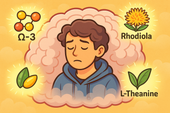
Brain Fog and Body Dysmorphic Disorder: Can Nootropic Supplements Help?
Brain fog often accompanies Body Dysmorphic Disorder, clouding focus and deepening emotional fatigue. Nootropic supplements like L-theanine, Rhodiola, and CoQ10 can help restore mental clarity, balance neurotransmitters, and bring calm energy back to the mind 🌿🧠.
-

How Stress Hormones Like Cortisol May Worsen Body Dysmorphic Disorder
Chronic stress floods the brain with cortisol — the hormone that keeps you on high alert. In Body Dysmorphic Disorder, this chemical overdrive fuels anxiety, distorts self-image, and traps the body in survival mode. Calming cortisol helps restore both peace and perspective 🌿🧠.
-

The Role of Neurotransmitters in BDD—and How Supplements May Help
Neurotransmitters like serotonin, dopamine, glutamate, and GABA shape how people with Body Dysmorphic Disorder perceive themselves. When these brain messengers fall out of balance, perception distorts — but targeted supplements can help restore calm, focus, and emotional regulation 🧠🌿.
-

What Is Body Dysmorphic Disorder? A Deeper Look at the Mind-Body Connection
Body Dysmorphic Disorder (BDD) isn’t just about appearance — it’s about perception. When brain chemistry, trauma, and stress distort self-image, the mind begins to see flaws that aren’t truly there. Healing starts by calming the nervous system and reconnecting mind and body 🪞🧠.
-

Keeping Calm in Competitive Sports: How to Train Your Mind, Body, and Chemistry for Peak Performance
Competitive pressure can overwhelm even the strongest athletes — but calm is trainable. By combining supplements like magnesium, L-theanine, and adaptogens with breathwork and mindset training, you can stay focused, balanced, and in control under any level of stress 🧠🏅.
-

Supplements for Parents Facing Toddler Tantrums: Staying Calm When Little Emotions Run Wild
Toddler tantrums can drain even the most loving parent — but your calm is powerful. With the right supplements like magnesium, L-theanine, and ashwagandha supporting your nervous system, you can stay patient, grounded, and kind, even when emotions run high 🧸🌿.
-

Workplace Stress and Anger Management Support
Workplace stress can quickly turn into frustration — but calm is a skill you can train. By combining supplements like magnesium, L-theanine, and adaptogens with breathwork and mindset tools, you can stay focused, patient, and emotionally grounded no matter how intense the office gets 💼🌿.
-

How to Stay Patient With Family During Stressful Holidays
Holiday gatherings can stir up old stress and test your patience — but calm is possible. With nervous system support from magnesium, L-theanine, and adaptogens, plus mindful breathing and clear boundaries, you can stay centered, kind, and grounded even when family chaos unfolds 🎄💞.
-

Supplements to Keep Calm During Traffic Jams
Getting stuck in traffic doesn’t have to ruin your mood. With calming supplements like magnesium, L-theanine, and ashwagandha, you can train your body to stay relaxed and focused behind the wheel — turning gridlock into a moment of grounded patience 🚗🌿.
-
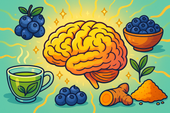
The Role of Antioxidants in Healing Brain Stress from Dissociation
Antioxidants protect the brain from the oxidative stress caused by trauma and dissociation. By neutralizing free radicals and supporting mitochondrial recovery, they help restore clarity, focus, and emotional balance — allowing the mind to heal at the cellular level 🌿🧠.
-
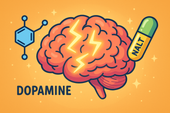
N-Acetyl L-Tyrosine (NALT) for Supporting Mental Clarity
N-Acetyl L-Tyrosine (NALT) fuels dopamine production — the neurotransmitter of focus and motivation. By supporting brain chemistry during stress, NALT helps restore mental clarity, energy, and alertness, making it easier to think clearly and feel present again ⚡🧠.
-

How Ginseng May Improve Focus and Energy in Dissociation
Ginseng helps combat the mental fatigue and fog that often come with dissociation. By supporting mitochondrial energy, balancing neurotransmitters, and regulating cortisol, it gently restores focus, motivation, and emotional presence — helping the mind reconnect with clarity and strength 🌿⚡.
-
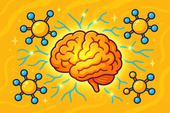
Phosphatidylserine and Dissociation: Supporting Cognitive Function
Phosphatidylserine helps calm the stress response by balancing cortisol, the body’s primary stress hormone. By lowering cortisol spikes, it protects memory, focus, and emotional stability — restoring clarity and mental presence for those struggling with dissociation 🧠🌿.
-
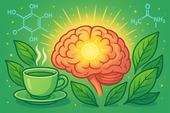
Can Green Tea Extract Help with Dissociative Brain Fog?
Green tea extract may help lift dissociative brain fog by supporting neurotransmitter balance, reducing inflammation, and enhancing energy at the cellular level. With its key compounds EGCG and L-theanine, it promotes calm focus, clarity, and emotional presence — helping you feel more alert and grounded 🍵🧠.
-
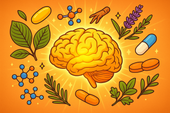
Building a Natural Supplement Stack for Dissociation Support
Building a supplement stack for dissociation means nourishing the brain and body back into communication. By supporting neurotransmitters, gut health, and energy balance through nutrients like magnesium, omega-3s, curcumin, and probiotics, you can help restore clarity, calm, and connection — one layer at a time 🌿🧠.
-

Chamomile and Lavender for Dissociative Anxiety Relief
Chamomile and lavender work together to calm dissociative anxiety by soothing the nervous system and restoring emotional safety. Their natural compounds balance cortisol, enhance GABA activity, and activate the vagus nerve — helping you feel grounded, connected, and at peace again 🌿💜.
-
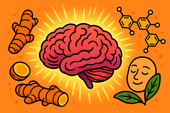
Curcumin for Inflammation and Mental Clarity in Dissociation
Curcumin, the golden compound in turmeric, does more than fight inflammation — it helps clear the mental fog often tied to dissociation. By calming neuroinflammation, balancing neurotransmitters, and supporting mitochondrial energy, curcumin can restore mental clarity, focus, and emotional presence 🌿🧠.
-
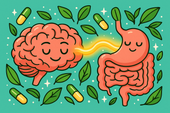
Probiotics and Dissociation: Exploring the Gut–Brain Axis
The gut–brain axis plays a vital role in emotional awareness and presence. When the microbiome is balanced, it supports serotonin production, vagus nerve activity, and calm focus. Probiotics help repair this connection — restoring safety, clarity, and the feeling of truly being in your body again 🌿🧠.
-
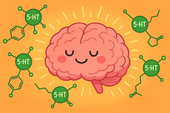
5-HTP for Dissociation: Supporting Serotonin and Emotional Stability
5-HTP helps bridge the gap between emotional numbness and stability by supporting serotonin production — the neurotransmitter that shapes mood, sleep, and sensory awareness. For people experiencing dissociation, 5-HTP may gently restore connection, presence, and emotional balance from the inside out 🌿🧠.
-
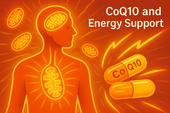
CoQ10 and Energy Support for People with Dissociation
Chronic dissociation often leaves the body running on empty — tired, foggy, and disconnected. CoQ10 helps recharge that system at the cellular level by restoring mitochondrial energy, reducing oxidative stress, and supporting the brain’s capacity to stay present. It’s energy medicine for both body and mind ⚡🧠.

















































